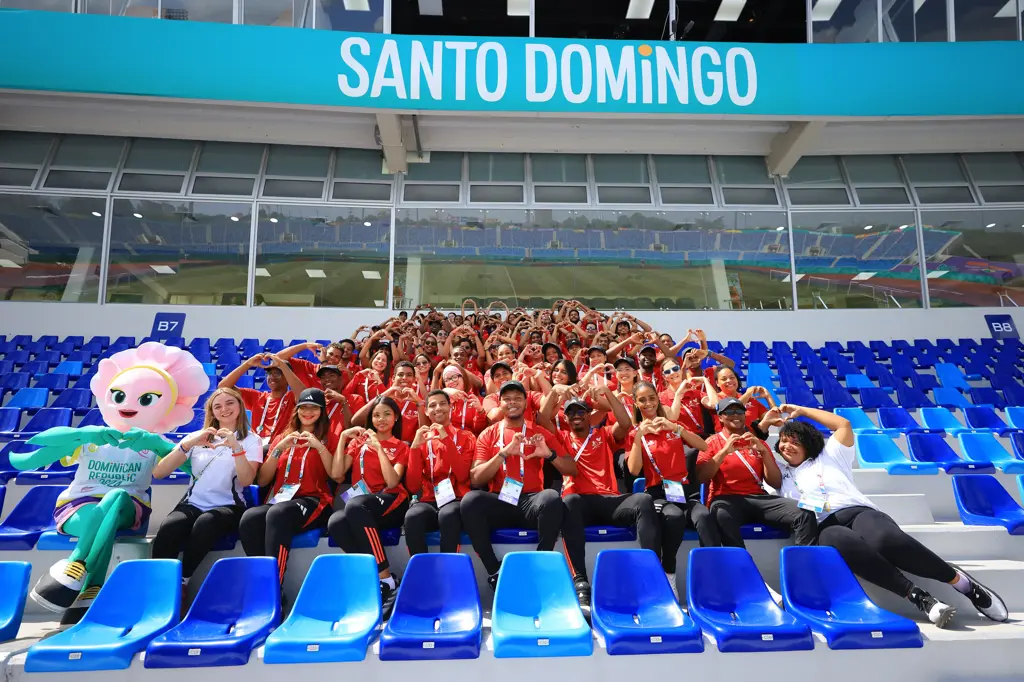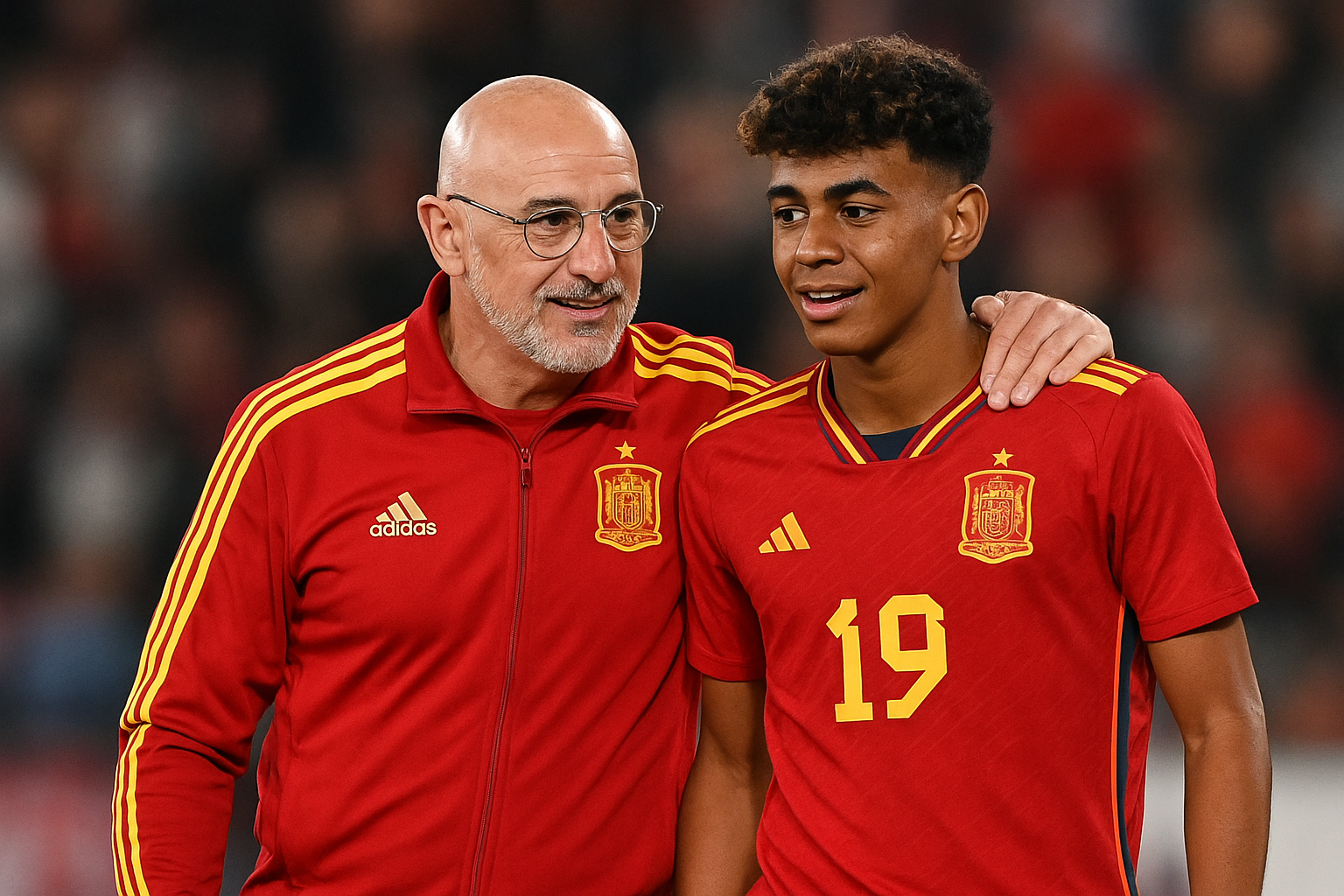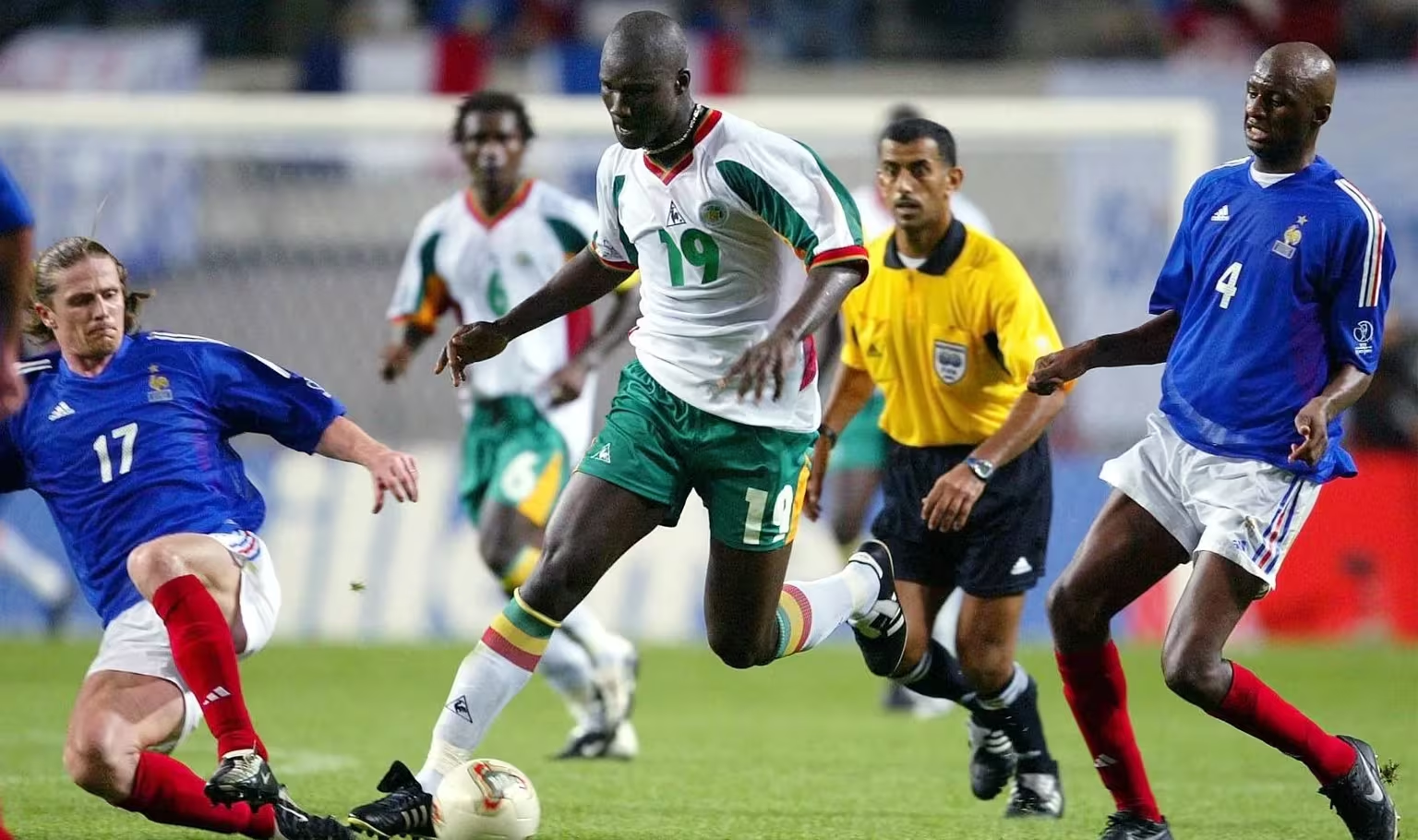Former Mexico defender Fernando Quirarte recalls his rapport with the fans at the 1986 World Cup on home soil and lessons for the 2026 team.
- Quirarte featured in the iconic Mexico side coached by Bora Milutinovic
- The defender scored two goals at the 1986 FIFA World Cup on home soil
- He hailed team spirit as the key to their quarter-final run
“That moment is still fresh in my mind,” recounted Fernando Quirarte, a mainstay of Mexico’s back line at the 1986 FIFA World Cup Mexico™. “Before kick-off, they played the Mexican national anthem – the sound system broke and people kept on singing. We were with them all the way. We all stood together, and it was such a beautiful moment. I felt a real bond between us and the fans.”
In an interview with FIFA, the former player reminisced about an experience that went far beyond the World Cup itself. Not only did he earn a starting position in the tournament on home soil, but he also rose to the occasion by scoring two decisive goals that helped propel Mexico to new heights. Nearly four decades later, that personal and collective journey stands as a touchstone in conversations about Mexico’s notorious struggle to progress beyond the round of 16 in international tournaments.
With Serbian coach Bora Milutinovic in the dugout, Mexico assembled a golden generation of players that included not just Quirarte, but also the likes of Pablo Larios, Hugo Sanchez, Tomas Boy, Manuel Negrete and Javier Aguirre, who is now at the helm of a new crop of stars who have their sights set on FIFA World Cup 26™ glory. That time from 1986 still lives on in the hearts of supporters.
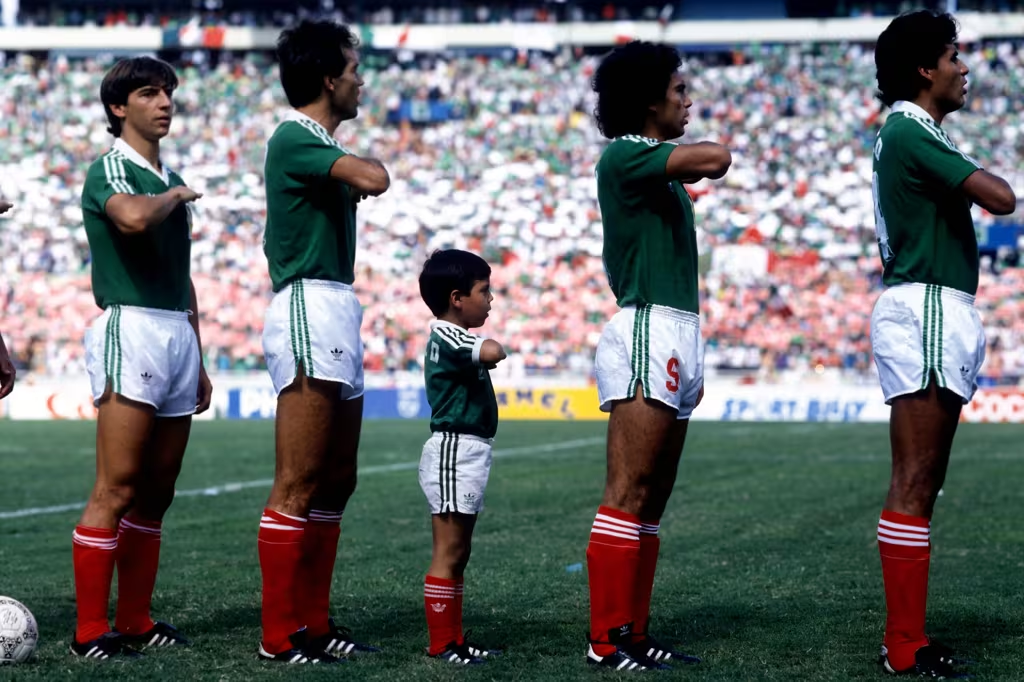
In less than a year’s time, Mexico will become the only country to have staged three editions of the World Cup, this time as joint hosts together with the USA and Canada. The excitement is already building, not only among fans eagerly awaiting kick-off, but also among the heroes of that 1986 campaign, such as Quirarte, who savoured the experience of celebrating goals and wins in front of a packed Estadio Azteca that pulsed with the rhythm of the game.
In that tournament, Mexico were drawn into Group B alongside Paraguay, Belgium and Iraq. Their route to kick-off was marred by turmoil off the pitch. Just a year earlier, the Mexican capital was rocked by an unprecedented catastrophe in the form of an earthquake – a tragedy that caused thousands of fatalities and left widespread destruction in its wake. With admirable resolve, both the public and government in Mexico kept pushing forward.
“It was a deeply emotional experience for me given everything that had happened in Mexico,” said Quirarte. “There’d been a powerful earthquake, in which many people had lost their lives. In fact, one of my own relatives passed away – a cousin.”
But the pain hit even closer to home when, only four months before the player lined up against Belgium, his father died in Guadalajara, some 550km away from the capital city where the player was attending a national-team training camp. He travelled home to say his final goodbyes before returning to the job at hand: “I rejoined the squad with a renewed sense of purpose,” he said. “My dad had been really looking forward to seeing that World Cup.”
The night before the opener, with nerves running high, the defender visualised how the opening match might unfold. He was determined to score, so that he could dedicate that moment to his father, Fausto Quirarte, who had also devoted part of his life to football: “I kept praying to God for a chance to score. I thought about it every single day – I dreamed of that goal.”
Quirarte, who was plying his trade for Chivas at that time, started and scored on a powerful 23rd-minute header against Belgium. Having tallied Mexico’s opening goal of the tournament, he dedicated it to his father, sending a kiss to the heavens in tribute: “The crowd roared as one,” said Quirarte. “Some 120,000 people in the Estadio Azteca were all cheering my goal. It was a beautiful sound.” The match would end in an uplifting 2-1 win.
Quirarte would go on to double his World Cup goalscoring tally by securing a narrow win for his team over Iraq, following a 1-1 draw with Paraguay. His goal confirmed Mexico’s position as group winners and sealed qualification for a round-of-16 clash against Bulgaria. That match featured one of the most memorable goals in World Cup history: Negrete’s unforgettable scissor kick to open the scoring. To Quirarte, that 2-0 result was a turning point, proving to the team that nothing was out of reach.
Mexico were on the brink of breaking into football’s global elite, but a formidable West Germany side – eventual finalists – stood in their way. “We were facing a top team,” said Quirarte. “They had outstanding players including Pierre Littbarski, Hans-Peter Briegel, Karl-Heinz Rummenigge and Toni Schumacher. They had a seriously competitive squad, but we were evenly matched. We were buoyed by our quality and the support of our fans. There was also the fact that we were unbeaten. We knew that we had to make the most of our home advantage – the weather, the pitch and the backing of the crowd.”
That match was played at the Estadio Universitario, just outside of Monterrey. “We thought they’d start flagging because of the climate, but they’d actually prepared very well,” he said. “Then came penalties. It basically came down to the toss of a coin. Unfortunately, two of our guys missed.”
Mexico bowed out of that World Cup with the bitter taste of elimination still fresh in their mouths: “It hurt because winning that match would have sent us to Guadalajara to play a semi-final against France,” said Quirarte. “But we came up short – that Saturday was full of heartbreak for us all.”
However, the team could take pride in having gone toe-to-toe with the very best. But in that tournament, one star outshone all others: Diego Maradona.
That match was played at the Estadio Universitario, just outside of Monterrey. “We thought they’d start flagging because of the climate, but they’d actually prepared very well,” he said. “Then came penalties. It basically came down to the toss of a coin. Unfortunately, two of our guys missed.”
Mexico bowed out of that World Cup with the bitter taste of elimination still fresh in their mouths: “It hurt because winning that match would have sent us to Guadalajara to play a semi-final against France,” said Quirarte. “But we came up short – that Saturday was full of heartbreak for us all.”
However, the team could take pride in having gone toe-to-toe with the very best. But in that tournament, one star outshone all others: Diego Maradona.
“That World Cup belonged to Maradona – he was the best player in the world at that time,” reflected Quirarte. Although their paths did not cross at Mexico ‘86, they did meet on other occasions, including when the legendary No10 was still playing for Argentinos Juniors, as well as in a pre-World Cup friendly.
“Seeing him play back then completely blew me away,” said Quirarte. “He was always such a mesmerising player.” He even has a personal memento from the legend himself: “I have his signed shirt from a match we played in Puebla before the tournament. I keep it at home – it’s one of my most prized possessions.”
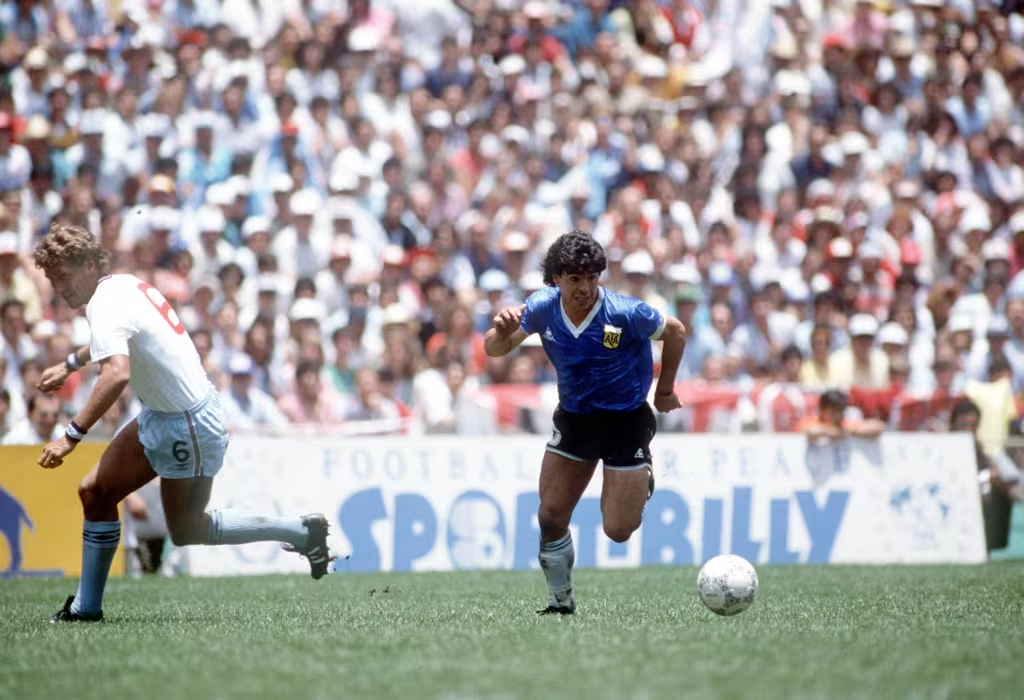
That memorable Mexico side owed much of its success to the sense of team spirit fostered by Milutinovic, thanks in part to the willingness of clubs to release their players for an extended training camp – a vital step in forging the bond needed to compete in a top global tournament.
The squad shared moments they would never forget. Quirarte told one story of how, during high-altitude training in Tlaxcala, they climbed La Malinche volcano – and somehow managed to lose their way.
“Bora said: ‘Tomorrow, we’re going to finish by hiking up the hill until we reach the cross, and then we’ll come back down.’ We were climbing for a few hours, but we lost half of the group on our descent. At each rise, we could make out the camp in the distance, but we were struggling to find our way back. After more than three hours we were absolutely drained. Then someone yelled: ‘There it is!’ Our exhaustion dissipated and we jogged the rest of the route.”
That experience turned into a valuable lesson. Milutinovic used it to remind the players that no matter how tired or unsure they felt, they could never throw in the towel. That metaphor became a defining part of the team’s identity during their historic run in 1986.
In 2026, Aguirre’s side will have their time to shine. Quirarte believes there are three secrets to success: “Self-belief, unity and playing as a cohesive national team”. The legacy of that 1986 squad endures and his advice for those who make the final cut is clear.
“Above all, it’s about the professionalism that each player shows on the pitch, putting everything on the line and leaving everything out there.”
📩 Disclaimer
This article is a rewritten version of content originally published by FIFA. It has been paraphrased and adapted for educational, informative, and SEO purposes. All trademarks, team names, and images belong to their respective owners.
💬 For copyright concerns or takedown requests, contact us at: support@abhrosh.com

